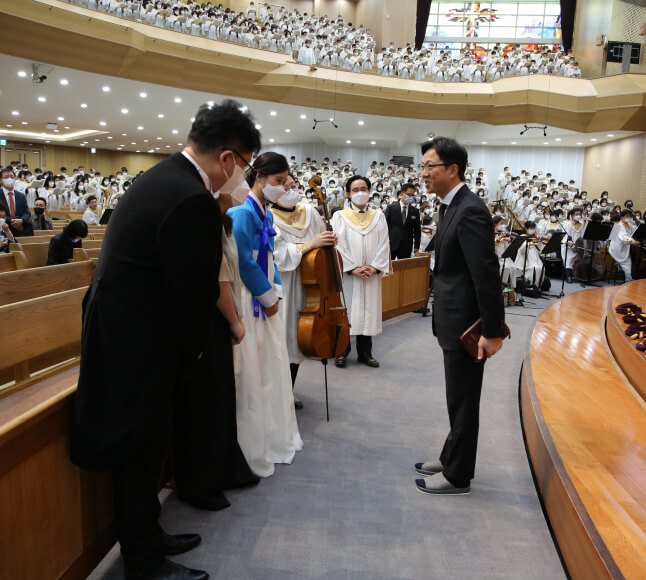Convened by the Global Christian Forum with the aim “to foster mutual respect and to address common challenges together”, a group met at Myungsung Church, Seoul, Korea, on 14 – 16 October 2022. Participants included representatives of the four pillars of the GCF (World Council of Churches, Roman Catholic Church (through the Dicastery for Promoting Christian Unity), Pentecostal World Fellowship and World Evangelical Alliance), along with church leaders from across Asia, local leaders from Korea and committee members from ecumenical organisations, who gathered to discern together their common witness in the diversity of Asian contexts. Do not fear, or be afraid;have I not told you from of old and declared it?You are my witnesses!Isaiah 44:8 And you will be my witnesses in Jerusalem, and in all Judea and Samaria and to the ends of the earth.Acts 1:8
We thank God for the opportunity to be in fellowship, to share our journeys of faith and to learn together about Christian witness in Asian contexts. In a spirit of prayerful trust, we explored some of the challenges to our witness and those things that keep us from being united. We left Seoul with deep gratitude for the gracious hospitality of our hosts, deeply encouraged by the opening dinner that brought together local church leaders and representatives of the government. We hope that this 1st GCF Asian Consultation will inspire more intense collaboration of churches of different traditions in the many contexts of this region.
